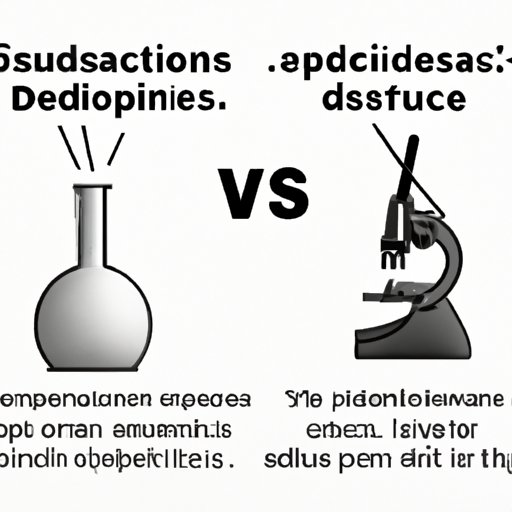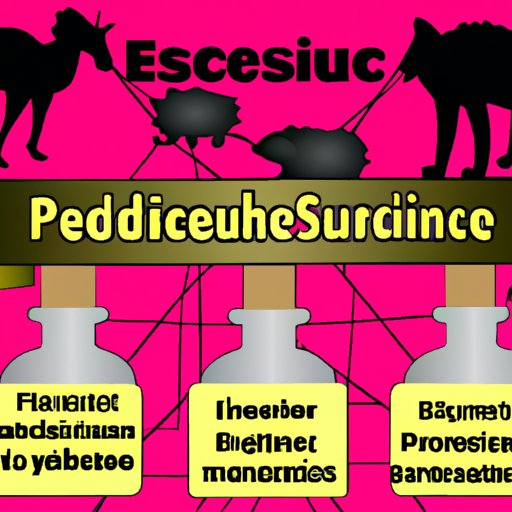Introduction
Pseudoscience is a term used to describe beliefs or practices that resemble science but lack scientific evidence to support them. Examples of popular pseudosciences include astrology, homeopathy, and various forms of alternative medicine. This article will explore what pseudoscience is, compare it to science, discuss its implications on society, and investigate its prevalence in modern culture.

Comparison of Pseudoscience and Science
Science is based on rigorous research methods and evidence-based results. Scientific studies are conducted by trained professionals and must undergo a rigorous peer review process before being published. The results of such studies can be replicated and tested to ensure accuracy. In contrast, pseudoscience does not use the same scientific research methods nor is it subjected to the same level of scrutiny as science. It relies on anecdotal evidence or personal experiences rather than empirical evidence to support its claims.
Pseudoscience often makes bold claims without providing any evidence to back them up. It also tends to ignore or reject scientific evidence that contradicts its claims. For example, some proponents of alternative medicine may dismiss the findings of scientific studies that show their treatments do not work. On the other hand, science is based on facts and is willing to change as new evidence emerges.
Implications of Pseudoscience on Society
The promotion of pseudoscience can have serious implications for public health and policy. For example, if people believe in pseudoscientific health claims, they may forgo conventional medical treatments and put their health at risk. It can also lead to the dissemination of false information, which can have a detrimental effect on society. Furthermore, the promotion of pseudoscience can lead to the wasting of resources on ineffective treatments and therapies.
In addition, there are often motivations behind those who promote pseudoscience. Some may do so for financial gain, while others may do so due to ideological beliefs or personal biases. However, it is important to remember that promoting pseudoscience can have dangerous consequences and should not be taken lightly.
History of Pseudosciences
Pseudosciences have been debunked over time as science has advanced and our understanding of the world has grown. For example, phrenology, which was once widely accepted as a legitimate science, is now considered to be pseudoscience. Similarly, alchemy, which attempted to turn base metals into gold, is now viewed as an outdated practice with no scientific basis.
Distinguishing pseudoscience from science can be challenging, as some pseudosciences may appear to be scientific at first glance. However, it is important to look closely at the evidence presented and consider whether it is supported by scientific research. Legitimate scientific findings can be replicated and tested, while pseudoscience cannot.

Prevalence of Pseudoscience in Modern Culture
Pseudoscience is increasingly prevalent in modern culture, and it can have a significant impact on people’s beliefs and behaviors. For example, many people continue to believe in pseudoscientific health claims despite scientific evidence to the contrary. Additionally, some people may use pseudoscience to justify their opinions or decisions.
It is important to remember that pseudoscience does not provide reliable or accurate information. Therefore, it is important to be critical of any claims made and to seek out evidence-based information when making decisions about health or other matters.
Conclusion
In conclusion, pseudoscience is a term used to describe beliefs or practices that resemble science but lack scientific evidence to support them. It is important to distinguish between pseudoscience and science, as the promotion of pseudoscience can have serious implications on public health and policy. Pseudoscience is increasingly prevalent in modern culture, and it is important to be aware of its potential dangers and seek out evidence-based information when making decisions.
(Note: Is this article not meeting your expectations? Do you have knowledge or insights to share? Unlock new opportunities and expand your reach by joining our authors team. Click Registration to join us and share your expertise with our readers.)
